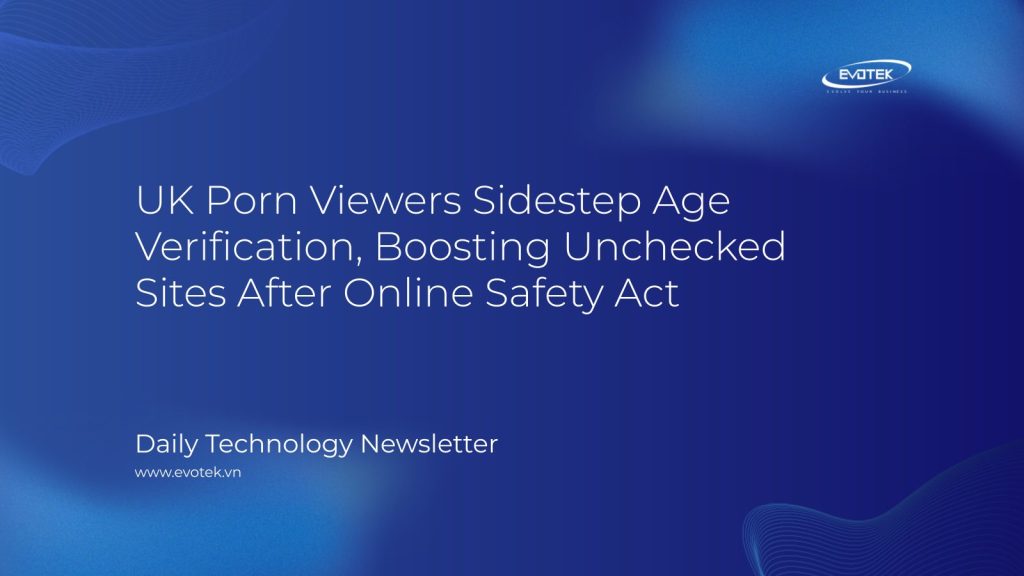A recent trend in the UK reveals a significant shift in online behavior: users are increasingly abandoning adult websites that enforce mandatory age verification in favor of platforms that disregard the new regulations. This exodus highlights a frustrating paradox for compliant businesses, which are now experiencing financial penalties in the form of lost traffic and revenue, while non-compliant sites flourish.
The Online Safety Act and Its Impact on Adult Content
Introduced in July, the UK Online Safety Act mandates that all sites featuring adult content – encompassing pornography platforms and certain social media – must implement robust age-checking systems. The days of simple “Are you 18?” pop-ups are over; visitors are now required to provide official identification, such as government IDs, selfies, or other verifiable forms of data.
While many major adult content providers, including industry giants like Pornhub and Xhamster, have integrated these new age verification measures to adhere to the law, a substantial number of smaller platforms have not. Reasons for non-compliance vary, ranging from the high cost of implementing such systems and concerns over dwindling visitor numbers to a outright refusal to acknowledge UK regulations.
Consequences for Non-Compliance and User Response
The UK’s media regulator, Ofcom, possesses the authority to impose hefty fines on companies failing to comply, potentially reaching up to £18 million ($24.1 million) or 10% of their global revenue. Furthermore, senior managers at persistent offenders could face criminal liability, including up to two years in jail, prompting some sites to cease operations entirely within the UK.
Despite assurances from third-party age-verification companies that user data will not be retained or used to track browsing habits, many individuals are understandably reluctant to submit personal identifying information or facial scans. While Virtual Private Networks (VPNs) offer a potential workaround, a more common response has been for users to simply bypass age-verified sites altogether, instead seeking out platforms that remain unburdened by ID checks.
Evidence of a Major Traffic Shift
Research conducted by The Washington Post, analyzing the top 90 adult websites based on UK IP data via the analytics platform Similarweb, confirms this trend. The study found that 14 of these sites had yet to implement extensive age-checking systems. Over the past two months, traffic to these non-compliant “rule-breakers” has seen an explosive increase, with one particular site experiencing a doubling of its UK-based visits.
This surge in traffic for unregulated sites undoubtedly comes at the expense of their compliant competitors, which are now grappling with reduced visitor numbers, diminished advertising revenue, and the added cost of maintaining their age verification infrastructure.
Regulatory Action and Public Dissent
Ofcom has already initiated investigations into four companies collectively operating 34 adult content websites, scrutinizing their age-checking compliance. Concurrently, a petition to repeal the Online Safety Act has garnered over 533,000 signatures, reflecting widespread public dissatisfaction, though its success remains highly improbable.
The challenges posed by age verification are not unique to the UK. In the United States, similar discussions are raising concerns about security, privacy, and the evolving boundaries of internet freedom in an increasingly regulated online landscape.

 日本語
日本語 한국어
한국어 Tiếng Việt
Tiếng Việt 简体中文
简体中文